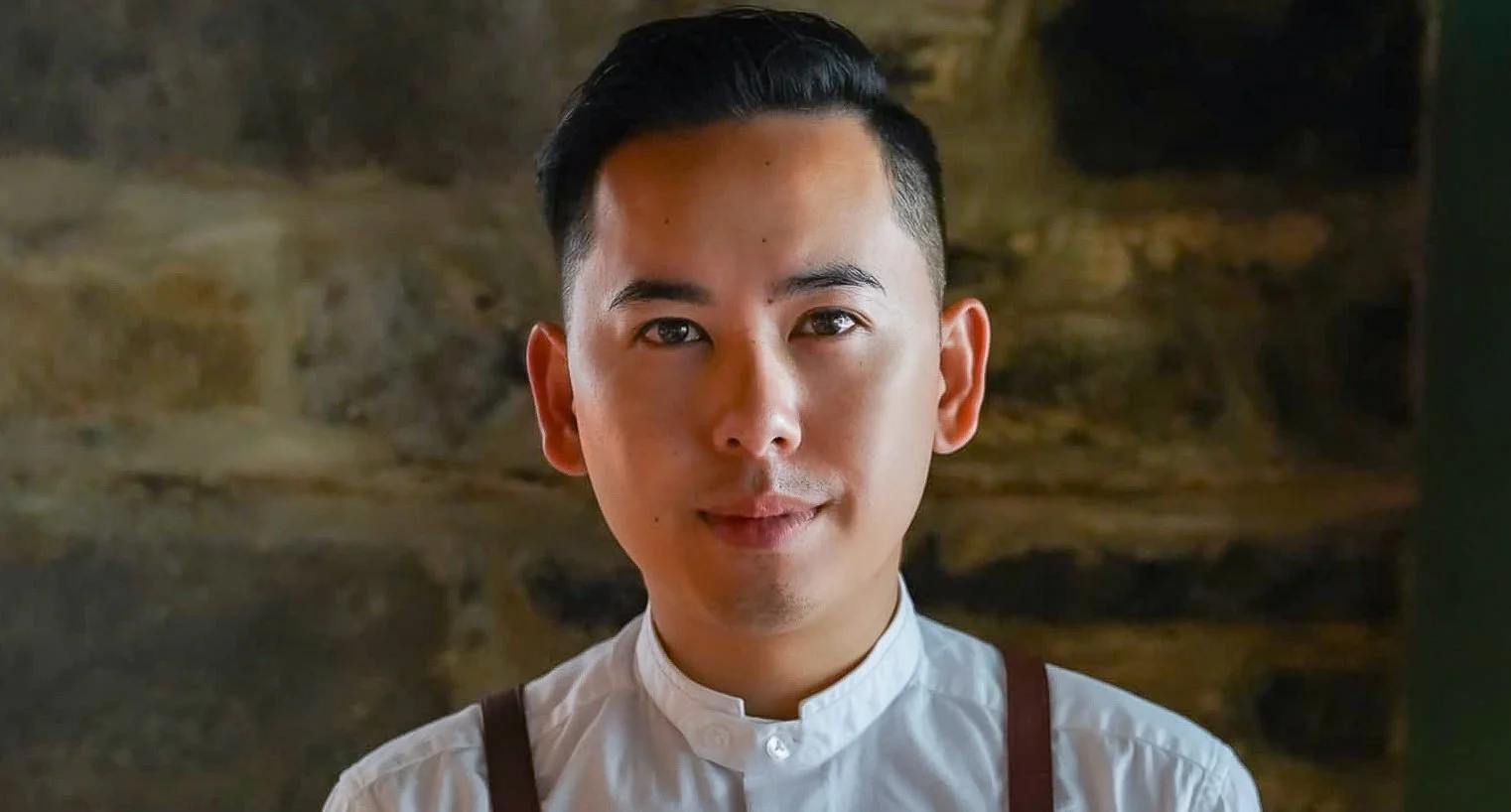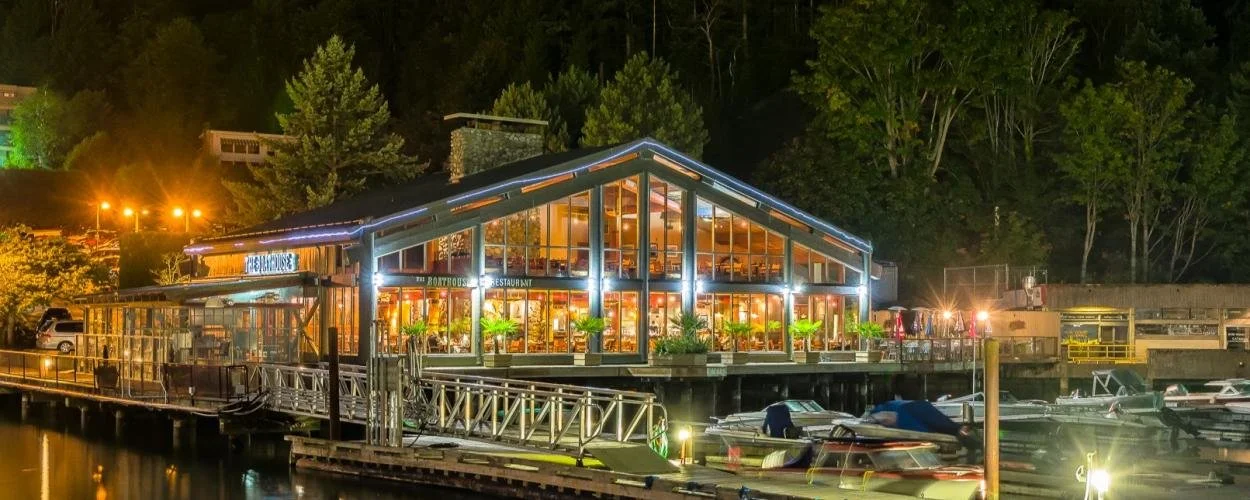At Vancouver vegan restaurant Nightshade, chef Chanthy Yen draws on a world of culinary experiences
Yen is also the personal chef to the Trudeau family and is about to launch Canada’s first Cambodian cookbook
Nightshade’s rapini roll.
Chanthy Yen.
GLOBAL FLAVOURS AND culinary techniques are on the modernist menu at Nightshade, a think-outside-of-the plant-based-box restaurant in Yaletown. Consider edamame spiked with rayu, or Japanese chili oil; fennel congee infused with sake-scallion dressing; turmeric agnolotti stuffed with vegan cheeses from Vancouver’s Blue Heron; rosewater-hibiscus apple tart; and glistening, translucent pearls made of saffron and pickled ginger. Chanthy Yen is the vegan restaurant’s executive chef. He’s making waves not only locally with his boundary-pushing fare but also right across Canada in other ways.
Since launching Nightshade earlier this year, the Ontario-born chef with Cambodian roots accepted the position of personal chef for Prime Minister Justin Trudeau and his family. (Yen splits his time between Vancouver and Ottawa.) There are plans afoot to cook for the Royal Family of Cambodia. And he is working on Canada’s very first Cambodian cookbook. Coming out in 2023, it’s to be called Recipes From Yey, the term meaning “grandmother”in Khmer.
Not surprisingly, Yen can’t say a peep about the Trudeaus’ tastebuds or anything remotely related (we tried), but he can shed light on the significance of the role.
“I can tell you that I am very proud to be a Cambodian-Canadian and to be where I am in this point in my career,” Yen tells Stir. “Under the Trudeau Senior government, many Cambodians that fled the Khmer Rouge in the ’80s were given the opportunity to call Canada home, including my own family. I feel that I am able to honour my family and that history by taking on this position. This is my version of giving back and representing the Khmer population in Canada.
“With this opportunity,” Yen says, “I am able to share my experiences through food and storytelling.”
His personal story around cooking goes way back to when he was a child, always surrounded by aunties and grandmothers—which meant good food—and, he notes, good gossip, too.
“The earliest memory that I have from the kitchen was when I was quite young,” Yen says. “It was early morning; I was woken up by the sound of clashing stones coming from somewhere in the house. I got up and started moving closer to the kitchen and found my grandmother with mortar and pestle in hand preparing kroeung, a traditional fragrant curry paste. I walked over, gave her a kiss on the nose, and took over the task. Without words or hesitation, she passed the mortar and pestle to me, kickstarting the passion that I still try to bring to the kitchen every day.”
Yen was 15 when he started working at an Italian restaurant. He trained at Vancouver’s NorthWest Culinary Academy in Vancouver, apprenticed at Spain’s two-star Michelin restaurant Maguritz, and went on to open Montreal’s award-winning Fieldstone restaurant and the popular Cambodian street-food pop-up Touk. Along the way he has explored Syrian, French, and molecular cuisines, among others. At Nightshade, Yen draws on techniques and flavours from a lot of different places, including India, Cambodia, Thailand, and Laos. The kitchen also uses strict Japanese techniques in certain dishes. Elsewhere, ingredients might be fermented, smoked, dehydrated, puffed, or pickled. (He loves the brightness and vibrancy that pickling adds to dishes, pointing to the curry pickled cauliflower as one of his favourites.) He creates ultra-tender pure-vegetable confits as well as innovative condiments and chutneys.
Being able to draw on so many styles is one reason he wanted to pursue culinary arts in the first place.
“It gives me the opportunity to constantly explore new ideas and be inspired by different individuals and cultures,” Yen says. “Another reason that I love the profession is that I get to pass on that accumulated knowledge to curious minds so that they can one day lead their own kitchens, and I hope to instill in them that they can do so in a respectful and sustainable manner.
“It is an art, truly,” he adds. “There are intuitive ways to play with modern and traditional methods as well as ingredients. Cooking with intention allows you to discover new skills or inspires creativity. There are so many things to consider other than staging a dish for the camera. How is it prepared? Where does it come from? The whole connection from farm or source to the kitchen to the table is so important. So many talented and passionate individuals are involved along the journey.”
Taro roll at Nightshade.
Nightshade’s menu changes with the seasons and with what local growers and suppliers might bring in at any given time. (Try the medley of summer root vegetables and sour apples roasted and dressed in house-made grainy Dijon aioli, which comes with focaccia crostini, whipped chive Butter, fresh herbs, and “caviar” made of yellow mustard bloomed with pickling liquid.) One item that will always be offered is the taro roll. Crisp, fresh, and spicy, it consists of rice paper stuffed with a peppery taro filling and fried until crispy; it’s served with fragrant herbs, lettuce, and a palate-pleasing palm-sugar dipping sauce. Cocktails are similarly inventive. Any drinks that call for foam typically derived from egg whites are made with aquafaba, such as the Tokyo Affair: shin yuzu wine brings out the fragrant citrus tones in the drink with gin, Gekkeiken sake, yellow Chartreuse, lemon juice, and lime leaf bitters.
“Vancouver is a hub for all things innovative,” Yen says. “Bringing Nightshade to Vancouver allows a segment of the population to explore new boundaries with plant-based dishes that transcend the often-too-conventional offerings of bowls and sandwiches. Cooks have an opportunity to try their hand at creativity, experimenting, and hopefully staying curious.”
Yen’s forthcoming cookbook, which is dedicated to his grandmother, holds more than 200 recipes and many stories about navigating Cambodian food culture on Canadian soil.
“In many ways I have been privileged; I didn’t have to live through the war and I always had access to food and education, but in no way was my upbringing easy,” Yen says. “Writing this book on such a large platform is very daunting because I revisit the traumas of my family’s PTSD from the war and how it impacted my own life trajectory. I am very proud to have this opportunity because I feel there is a story that people can connect to.”
Nightshade, A Tokyo Affair.

















